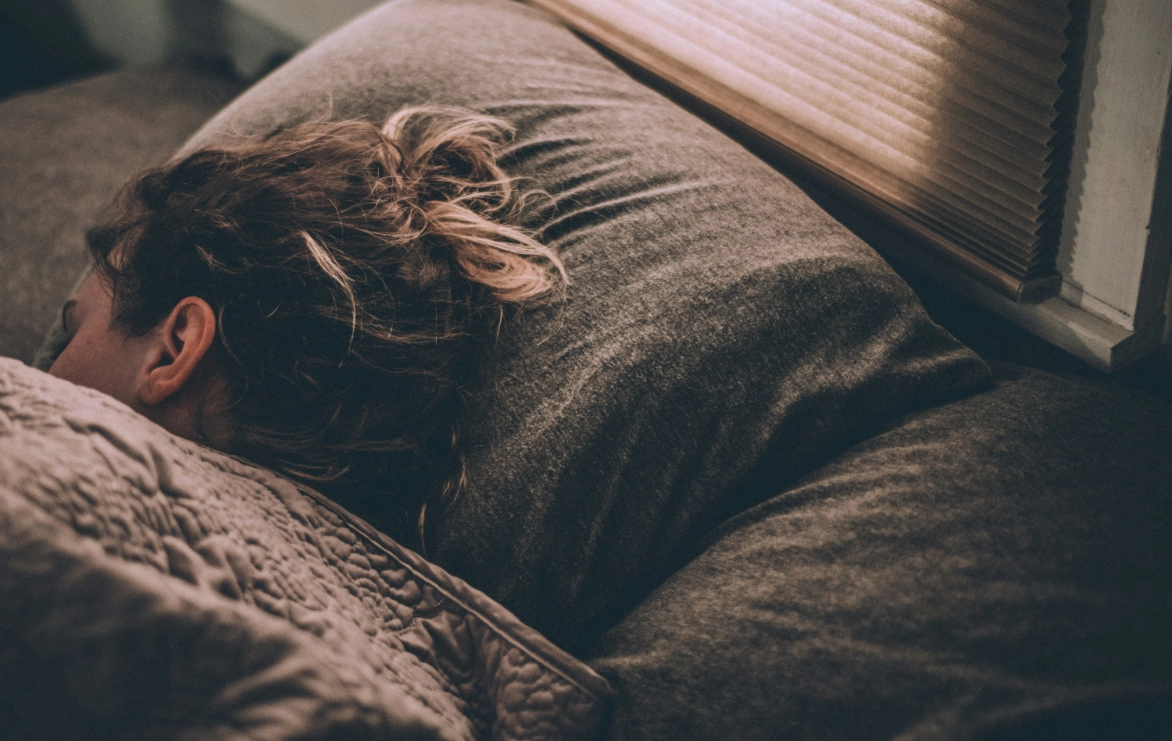Did You Know Your Dentist Can Help Stop Snoring?
Snoring might be a common problem, but that doesn’t mean it’s not disruptive. Whether you’re the one snoring or the one listening to it, it can affect sleep quality, relationships and even long-term health. Snoring can be associated with medical conditions such as sleep apnoea, but it’s important to note that not all snorers have sleep apnoea – and that’s where your dentist can help.
At Holland Park Dental Centre, we often see patients who are surprised to learn that there are dental treatments specifically designed to help manage snoring. These treatments are simple, non-invasive and can make a big difference to both your sleep and your quality of life.

What Causes Snoring?
Snoring happens when airflow through the mouth and nose is partially blocked during sleep. As air passes over relaxed tissues in the throat and palate, they vibrate – and that vibration is what causes the sound we recognise as snoring.
There are many reasons why this might happen:
- Relaxed throat muscles: This naturally occurs during sleep, but becomes more pronounced with age or after drinking alcohol.
- Sleep position: Sleeping on your back can cause the tongue to fall backwards, narrowing the airway.
- Nasal congestion: Allergies, colds or structural issues like having uneven sides of the nose (a deviated septum) can contribute.
- Lifestyle factors: Being overweight, smoking and alcohol consumption can all increase the likelihood of snoring.
- Jaw structure: Some people have naturally smaller airways or receding lower jaws that make snoring more likely.
For many, these factors combine to create noisy nights. But thankfully, dentists can offer an effective and comfortable solution.
How Dental Treatments Can Help
One of the most successful dental solutions for snoring is a mandibular advancement device (MAD). These custom-made oral appliances gently reposition the lower jaw (mandible) slightly forward during sleep. This helps keep the airway open, preventing the soft tissues at the back of the throat from collapsing and vibrating.
We provide custom-fitted oral appliances that are designed specifically for you and your mouth. Unlike over-the-counter mouthguards, which can be bulky or uncomfortable, our devices are precision-made to ensure comfort and effectiveness. You simply wear the appliance while you sleep – it’s discreet, portable and easy to maintain.
This approach differs from treatments for obstructive sleep apnoea (OSA), which often require medical management and may involve continuous positive airway pressure (CPAP) therapy. However, many people who snore but don’t have sleep apnoea can find real relief through a dental device alone. You can read more about sleep apnoea in a previous article.
The Benefits of a Dental Approach
There are several advantages to using a dentist-prescribed oral appliance to treat snoring:
- Non-invasive: No surgery or complex medical equipment required.
- Comfortable and discreet: Custom-made to fit snugly in your mouth, so most people find them easy to tolerate.
- Portable: Ideal for travel – much easier than bulky devices like CPAP machines.
- Quiet and convenient: They work silently, helping everyone in the household enjoy a better night’s sleep.
- Effective: Studies show that custom-fitted mandibular advancement devices can significantly reduce or eliminate snoring for many patients.
We also make sure your treatment is fully monitored. During your follow-up visits, we’ll check that the appliance remains comfortable and is working effectively for you.
Who Is a Good Candidate?
Oral appliance therapy is best suited for regular snorers or those with mild to moderate airway obstruction who do not have severe sleep apnoea. If you’re not sure whether your snoring might be linked to sleep apnoea, we can work alongside your GP or sleep specialist to ensure you receive the right diagnosis and treatment.
Signs that your snoring might be part of a more complex issue include gasping or choking during sleep, severe daytime fatigue or morning headaches. If any of these sound familiar, we’ll refer you for a medical sleep assessment to make sure you’re properly cared for.
For most people, however, snoring is a mechanical issue – and that’s something your dentist can help with.
Lifestyle Tips to Support Snoring Treatment
Dental treatments work best when combined with healthy habits. Some simple lifestyle adjustments can further reduce snoring:
- Maintain a healthy weight – even small changes can make a big difference.
- Avoid alcohol before bed, as it relaxes throat muscles.
- Sleep on your side rather than your back.
- Keep nasal passages clear with saline sprays or allergy management.
- Maintain regular oral health check-ups to ensure your mouth and airway are in good shape.
These changes, alongside a dental appliance, can be a highly effective approach to reducing snoring.
How Holland Park Dental Centre Can Help
We believe that good oral health contributes to every aspect of wellbeing – and that includes restful sleep. Our experienced dentists can assess the causes of your snoring and advise whether a custom oral appliance is right for you.
We also understand that every patient is unique. We’ll take the time to listen, explain your options clearly and ensure your treatment is comfortable and tailored to you.
If you’re already familiar with our sleep apnoea treatments, you’ll know that airway health is a key part of what we do. Our snoring treatments complement that approach, offering relief for those who don’t have apnoea but still want a quieter, more peaceful night.
Ready for a Restful Night’s Sleep?
If snoring is keeping you – or your partner – awake, it may be time to explore a dental solution. Our friendly team can assess your needs, discuss treatment options and help you find the best approach for a quieter, healthier night’s rest.
Contact Holland Park Dental Centre today to book a consultation or to ask any questions about snoring treatments or general dental care. Together, we can help you (and those around you) sleep soundly again.

Sorry, the comment form is closed at this time.